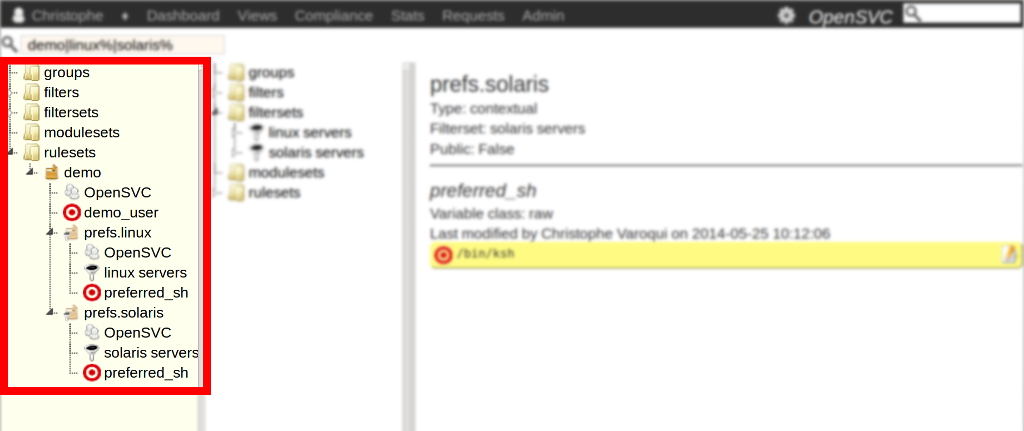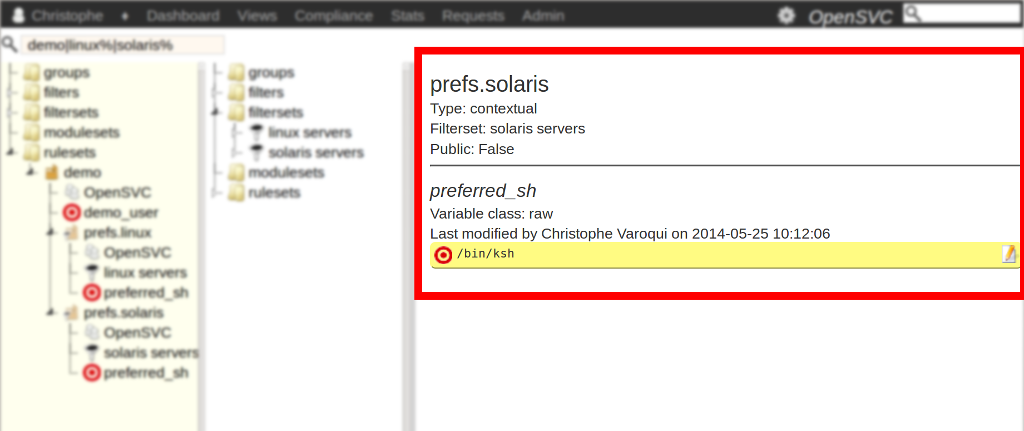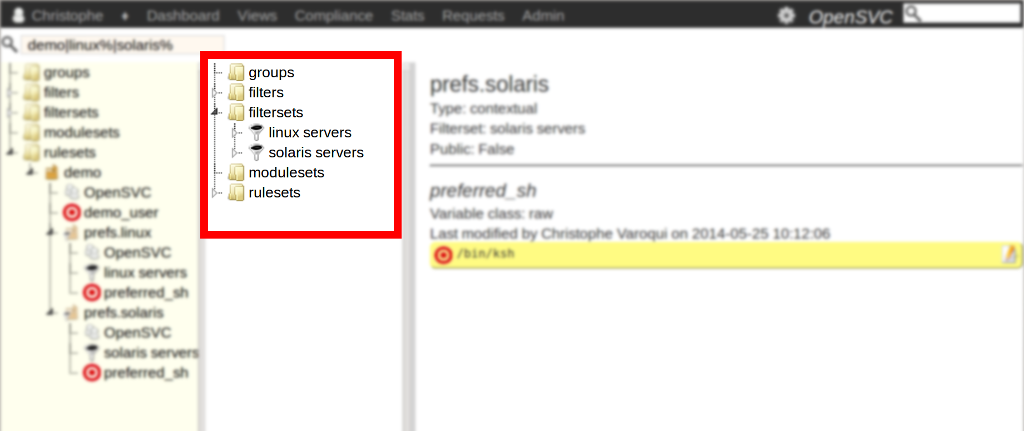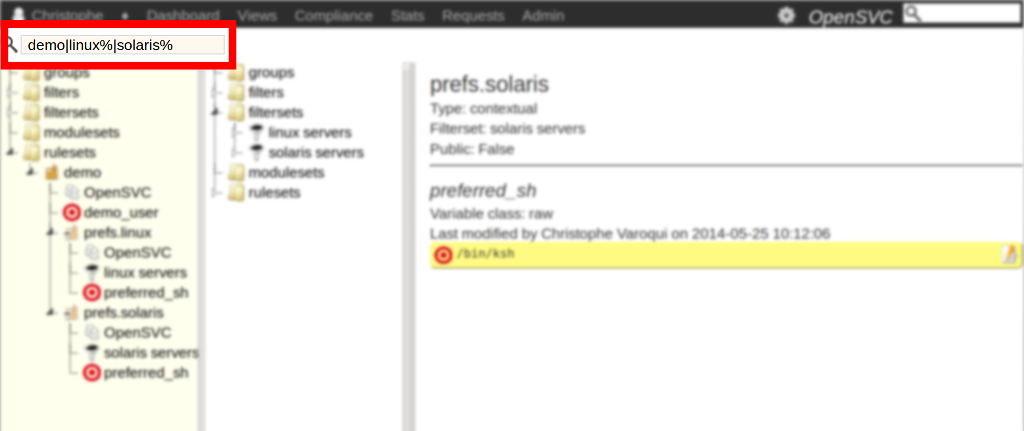Designer¶
The designer is a tool optimized for ruleset and moduleset creation and edition, and for complex encapsulated rulesets visualization.
Layout¶
Left panel¶

The left panel presents a tree of all compliance objects, grouped by categories : filters, filtersets, modulesets and rulesets.
Right panel¶

The right panel shows the properties of the object selected in the tree.
author
publishing flag of a ruleset
contextual or explicit type of a ruleset
- users of a ruleset or moduleset
matching nodes and services
explicitely attached nodes and services
rules in a rulesets
modules in a modulesets
Foldable extra tree¶

The separator line between the left and right panels is clickable. When clicked, a second tree is shown. The content of both trees is the same, but each tree having its own scrollbar, you can focus on a different data cursor in each tree to facilitate drag-and-drop actions between objects far appart in the tree structure.
Search box¶

A search box is displayed in the top-left corner. The search string is applied on the <return> keyup event. The search string syntax is the same used for column filtering in all collector data views. See this page for the syntax reference.
Only the filtersets, modulesets and top-level rulesets are filtered with the search string. A top-level ruleset not matching the search string will not be displayed, even if it contains matching child rulesets.
Usage¶
Screencast to come.
Noteworthy implementation choices¶
To help present a readable tree, the following implementation choices were made:
Explicit and contextual rulesets have different icons
Not published rulesets have a lighter icon
All rulesets are created at the top of the rulesets tree branch
Not published rulesets disappear from the top of the rulesets tree branch as soon as they are encapsulated. They are now visible only as child of their parent rulesets.
Actions¶
Drag-and-drop¶
dropped (A) |
dropped over (B) |
|||||
|---|---|---|---|---|---|---|
ruleset |
rule |
moduleset |
module |
filterset |
filter |
|
ruleset |
A becomes a child of B. If B is not published, A is no longer visible at the head of the ruleset branch. |
N/A |
N/A |
N/A |
N/A |
N/A |
rule |
A is copied from the parent ruleset to the B ruleset. |
N/A |
N/A |
N/A |
N/A |
N/A |
moduleset |
N/A |
N/A |
N/A |
N/A |
N/A |
N/A |
module |
N/A |
N/A |
A is copied from its parent moduleset to B |
N/A |
N/A |
N/A |
filterset |
A is attached to B. if B is explicit, it is left explicit to avoid unexpected detachment of B from nodes and services it is currently attached to. |
N/A |
N/A |
N/A |
A becomes a child of B. A default AND logical operator is set and the ordering weight defaults to 0. |
N/A |
filter |
N/A |
N/A |
N/A |
N/A |
A becomes a child of B. A default AND logical operator is set and the ordering weight defaults to 0. |
N/A |
Cloning¶
Rulesets are clonable.
A cloned ruleset’s name is its ancestor’s name suffixed with
_clone- A cloned ruleset retains its ancestor’s
publishing state
contextual or explicit type
filterset, if applicable
child ruleset relations
rules definitions
- A cloned ruleset looses its ancestor’s
ownership information. It is owned only by the cloner private group so that the it is not visible from any node and services.
parent ruleset relation. It appears at the head of the ruleset branch.